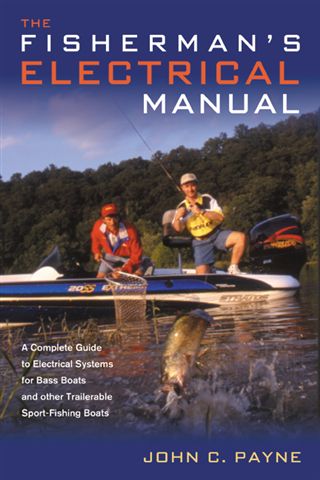Boat Trailer Part Failures
The most common boat trailer part to fail is the boat trailer electrical system. Like many I have experienced frequent issues, and they need to be checked and maintained regularly. It is subject to frequent water ingress into light fittings and lighting connectors almost every time you launch or retrieve your boat. Also this has the effect of rotting out the copper electrical cables so they tend to need rewiring on a regular basis. Copper doesn't last long with salt water as you know.
Boat Trailer Part
Boat trailer electrical systems are essential for safe towing, visibility, and compliance with road regulations. These systems typically include wiring harnesses, tail lights, brake lights, turn signals, and sometimes reverse lights or electric brakes. A well-functioning electrical setup ensures that the trailer communicates effectively with the towing vehicle, alerting other drivers to your movements and intentions.
However, boat trailer electrical systems are prone to several issues, especially due to their exposure to harsh marine environments. Corrosion is the most common culprit. Saltwater and moisture can infiltrate connectors, sockets, and light housings, leading to poor conductivity or complete failure. Regular rinsing with fresh water and applying dielectric grease to connectors can help mitigate this.
Boat Trailer Part Failures
The next most common boat trailer part failure points are the wheel bearings, subject to salt water ingress and corrosion as they sit in the back yard for long periods and tend to seizes up. Most wheel bearings are of the sealed type but that doesn't stop water ingress.
Initially the balls corrode at the contact point with the race and when they rotate the material flakes off, the heat is then generated with the friction and ultimately the bearing grease runs out and the bearing fails. This is usually while on your way to a good day fishing.
So what does this mean for you the boat owner, well if you don't look after your boat trailer you end up stranded at home when the season starts, or worse still you get left stranded at the boat ramp. If you are really unlucky your electrical lights on the trailer fail and the highway patrol shows little sympathy and gives you a fine.
Boat Trailer Electrical Issues
Most boat trailers use a 4-pin or 5-pin flat connector, though larger trailers may require 6-pin or 7-pin round connectors to support additional functions like electric brakes or auxiliary power. The wiring harness runs from the trailer tongue to the rear lights, often enclosed in protective tubing to shield it from water, salt, and physical damage.
Another frequent problem is grounding failure. Trailers rely on a solid ground connection to complete the electrical circuit. Rusted bolts, loose wires, or poor contact between the trailer frame and tow vehicle can disrupt this, causing lights to flicker or fail. Ensuring clean, tight ground connections is key to reliable performance.
Wiring damage is also common. Wires may chafe against the trailer frame, get pinched during loading, or degrade from UV exposure. Periodic inspections and using marine-grade wiring with proper insulation can prevent shorts and open circuits.
Boat Trailer Part Electrics
LED light upgrades offer improved durability and brightness, but they require compatible wiring and resistors to avoid hyper-flashing or malfunction. Additionally, mismatched connectors between the trailer and tow vehicle can lead to signal loss or incorrect light behavior.
In summary, maintaining a boat trailer’s electrical system involves regular inspection, corrosion prevention, proper grounding, and using quality components. Addressing issues proactively not only enhances safety but also ensures smooth transport to and from the water.
Boat Trailer Part Wiring
The UK and Europe use ISO Standards with two 7 pin plugs. Wiring harness are based on the EU 13 pin plug that is common on mainland Europe.
Boat trailer plug sockets connect the trailer’s lights and brakes to the towing vehicle. Common types include 4-pin (basic lighting), 5-pin (with reverse), and 7-pin (adds brakes and auxiliary power). Corrosion, poor grounding, and mismatched connectors are frequent issues. Regular cleaning and dielectric grease help maintain reliable connections.
12N Socket Standard
1 (L) – Yellow - Left hand indicator light
2 (54G) – Blue - Rear fog light
3 (31) – White - Ground/earth
4 (R) – Green - Right hand indicator light
5 (58R) – Brown - RHS Tail/Licence plate light
6 (54) – Red - Stop (Brake) light
7 (58L) – Black - LHS Tail/Licence plate light
12S Socket Supplementary
12S Socket Supplementary
1 Yellow - Reverse Light or Brake System
2 Blue - Spare
3 White - Return for Pin 4
4 Green - Power Auxiliaries/Battery
5 Brown - Warning Lamp
6 Red - Refrigerator
7 Black - Return for Pin 6
Get the right boat trailer part for your boat trailer information and advice on boat trailer parts.
